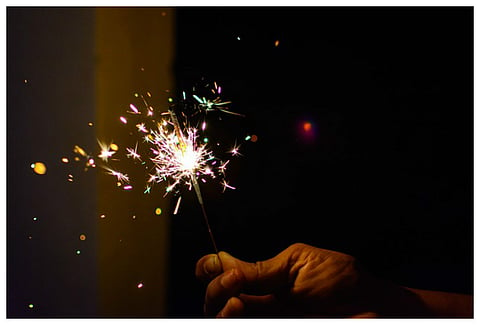

For two villages in the Sivaganga district S Maampatti and Kollukudipatti, Deepavali is much more than bursting crackers and distributing sweets.
Villagers from the Kollukudipatti village have not celebrated the festival for ages now and this because of their love for the birds in the Vettangudi bird sanctuary.
It is an unwritten rule in the hamlet that they will not burst crackers for Deepavali.
A 47-year-old person and a 90-year-old person both were asked have they ever seen Deepavali being celebrated in their hamlet. They both replied by saying that they haven’t seen the festival being celebrated in their hamlet, according to The Hindu article.
Most of the migratory birds come in October and return by February.
“It is our faith that, if large number of birds visit here, then that year farming activities will be good and we would get good rain, says villagers from the Kollukudipatti village.
Sivaganga district forest officer Sampathlal Gupta told TOI that Grey Herons, Darters, Spoonbills, White Ibises, Asian Open Bill Storks and even some endangered species like Little Cormorant, Little Egret, Cattle Egret and Flamingos come to the sanctuary between October and March.
S Sabhapati told The New Indian Express that people had started taking debts to celebrate Deepavali. Narrating one such story, he said, “The lenders would ask for one kilogram of paddy in return for a rupee that they had borrowed which would end in debt traps.”
The villagers do not follow any Deepavali customs and rituals like distributing sweets or jewels on this festive day. Rituals such as taking oil bath or making sweets are also not followed by the villagers.
Twelve hamlets in the S Maampatti village have a completely different reason for not having celebrated the festival for more than five decades.
In 1958, S Maampatti village had taken a vow before a local deity Kadukaavalar Swami Temple not to celebrate this festival. The villagers had taken this decision because of the debts that had burdened them then.
Deepavali comes during the non-harvest season and villagers would end up taking money from lenders. As the loans kept piling on, the village decided to abstain from extravagant festivities.